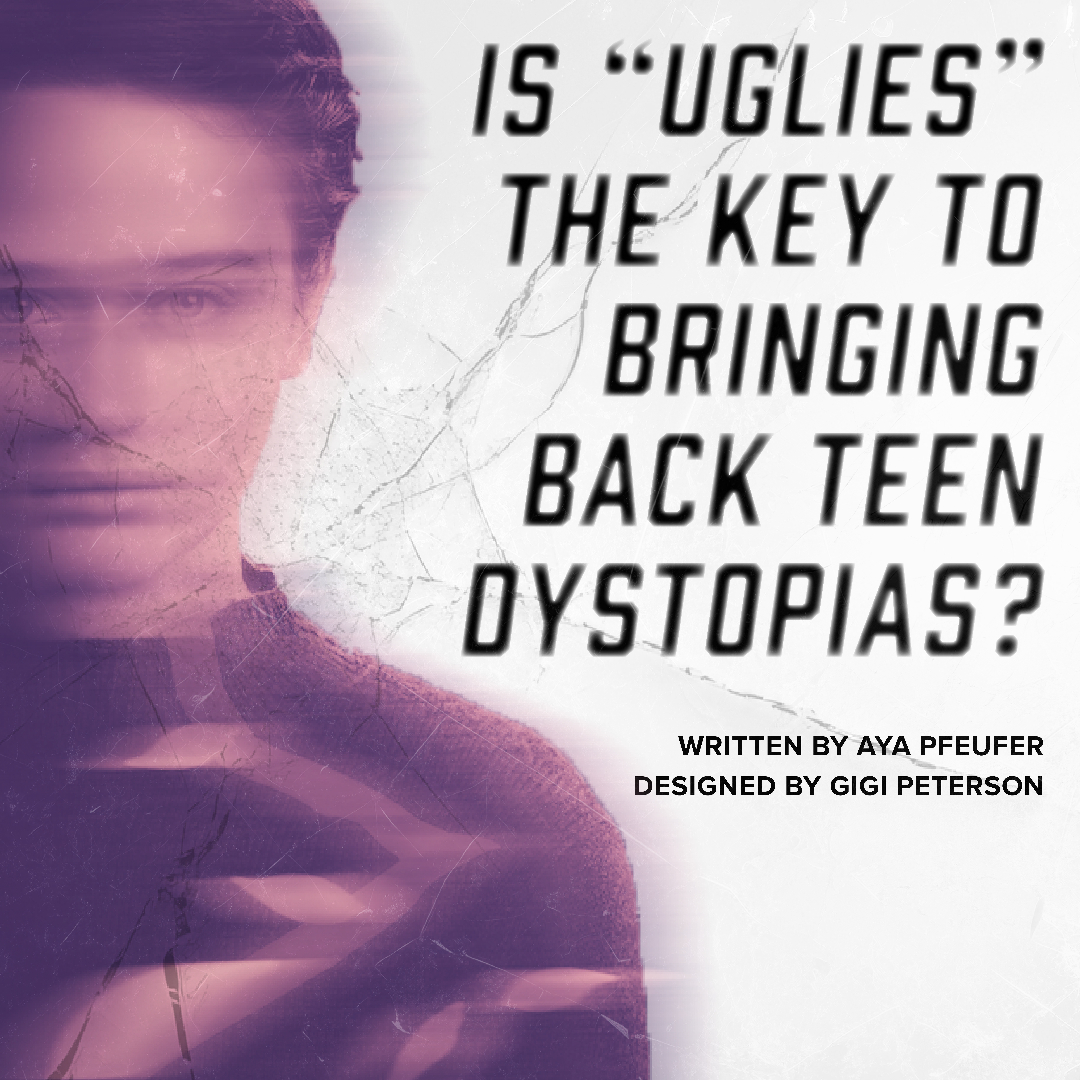
**This article contains spoilers.
“Uglies” was recently released on Netflix on Sept. 13. It’s a teen dystopian film based on Scott Westerfeld’s 2005 novel of the same title. Dystopian films have been fading in film selections ever since franchises like “The Hunger Games” and “Divergent” in the early 2010s.
”Uglies” Joey King, Brian Douglas/ Netflix
At the age of 16, everyone in this dystopian society undergoes surgery to remove any flaws in their appearance and become the prettiest version of themselves. Until then, they live in an old part of the city, looking forward to the day they can undergo surgery. Outside the city is The Smoke, a place which defies the rules of the system of becoming pretty, with citizens leading a different, simpler way of life. The film follows the journey of teenager Tally Youngblood (Joey King), who lives in a single dormitory where she eagerly counts down the days until her surgery. Her best friend Peris (Chase Strokes) undergoes surgery three months before her, and they agree to reunite a month later. However, when they finally meet again, Peris does not act like his usual self and seems rather distant, which hurts Tally’s feelings. As a result, Tally has to choose whether she wants to become pretty like she has always dreamed of, or not conform to society’s standards and join the people of The Smoke.
The film is fair but lacks depth; it does not delve much into the threats of a beauty-obsessed society. The most striking theme of the film is the discovery of the negative effects the surgery has on the brain; the procedure affects brain lesions, which reduce a person’s ability to think, suggesting superficial happiness post-surgery. Similar themes can be seen in today’s society with the rise of plastic surgery, tying it into society’s belief that being physically attractive makes you more happy and confident.
Some elements of the film are questionable, like the casting choice of 31-year-old Stokes playing a 16-year-old, and the progression of the friendship between Tally and Shay as they developed a strong bond in a short time. The film has rapid scene cuts, which does not leave enough time for character development, like Peris’s time in society, his interaction with other Pretties and what it is like on their side.
Both the transformation into a Pretty as well as the environment pre-operation is highly artificial. From the heavily CGI-ed dorms to a dream-like city filled with vibrant colors, it is an atmosphere that is both enchanting and jarring. Located at a distance just opposite Tally’s dorm, where she can observe the Pretties through an eyepiece technology, the city is familiar to other utopian fantasies. The visual effects are significant in forming the city, characterizing the Pretties by their flawless, glowing skin, strong facial structures and spectacularly colored eyes. This representation echoes the unrealistic beauty standards set through filters on social media platforms in today’s society. The visual aesthetic of the city of the Pretties creates an eerie effect, where anything deemed flawed is eradicated, creating surreal perfection.
On the other hand, The Smoke is vastly different. Life’s foundation is in nature, there is less technology and emphasis on aesthetics, which is the complete opposite of the Pretty environment. The residents of The Smoke live in tents built from the natural resources of their environment and function as a tight-knit community, which conveys the simplicity and resourcefulness of their living. The people of The Smoke value individuality and authenticity, whereas the Pretties are simply mindless clones created and controlled to maintain peace and equality. The film never really questions who benefits from the system in the first place. This makes you wonder what the agendas are in having such a superficial society.
“Uglies” explores the ideas of beauty and societal norms, demonstrating how characters like Tally and others in The Smoke challenge the beauty standards created by society. It also touches on the sense of identity and significance in creating connections with others based on personality rather than appearance. Despite this deep narrative on society, the film still runs short of fully intriguing the audience. Unlike early 2000s dystopian teen films that delve more into individuality in a rigidly structured society, “Uglies” does not fully develop its characters and their individual challenges.